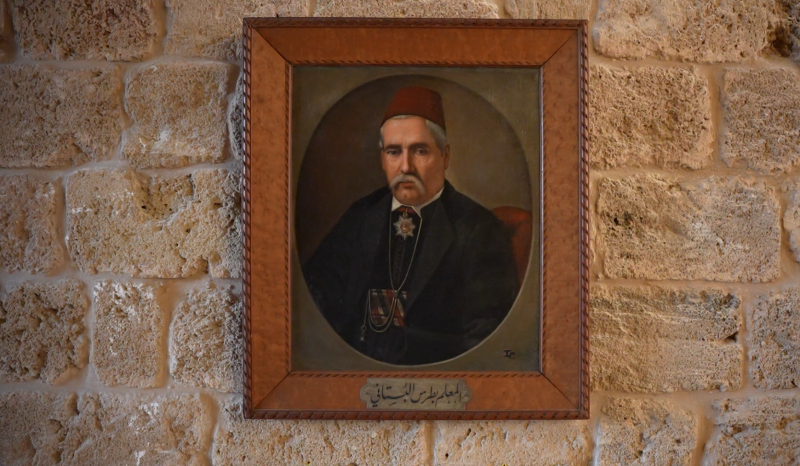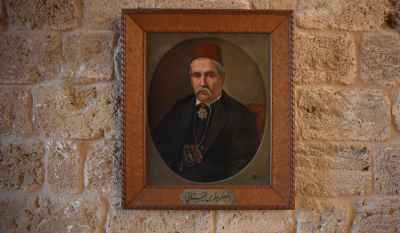"If ignorance prevails among women in any place or time, we see it spread and take full control over all its inhabitants, and what makes people barbaric or civilized is essentially the woman."
From a student in the village school “under the oak tree” to a writer, encyclopedist, educator, and historian. He was the first to establish a high national school, the first to create a noble and purposeful magazine, the first to compile a comprehensive modern Arabic dictionary, and one of the pioneers calling for women's education and the community's right for women to be good mothers, virtuous leaders, and successful managers in their homes and communities. He is the teacher, Botros Al-Bustani. In the context of celebrating his day, the "Teacher Botros Al-Bustani Association" held a ceremony titled "Teacher Botros Day" at the National Library in Sin el Fil. The celebration focused on his legacy in nationalism, science, the Arabic language, human rights, women's rights, civil peace, and freedom of conscience as a way of life, as well as his role in education.
**Minister of Culture: Teacher Botros Recognized the Importance of Lebanon**
The Minister of Culture, Mohammad Wissam Al-Mourtada, emphasized in an interview that the significance of Teacher Botros lies in "his understanding of the importance of Lebanon and the cultural and religious diversity it possesses, which makes it a haven in every sense of the word." However, he noted that this haven needs to address some challenges, given that Teacher Botros "mapped out a road map that we can adhere to in changing our reality." He stated that if the Lebanese people recognize the challenges facing the country, "Lebanon can become a model for good human life and a destination for the world to benefit from its religious, doctrinal, and cultural richness." He pointed out that the same diseases in our society today are the same afflictions that Bustani discussed, expressing surprise that "the national problems he addressed and for which he proposed solutions remain the same, as if the teacher's voice fell on deaf ears." Al-Mourtada affirmed that "the important thing today, on the anniversary of Teacher Botros, is that we embody his words, rejoice in them, strive to apply his sayings, and make them real actions."
**Al-Bustani: Civil State is the Solution**
For his part, the president of the "Teacher Botros Al-Bustani Association," MP Farid Al-Bustani, pointed out that the solution to all sectarian problems in Lebanon is the civil state, and there must be efforts to implement it through unifying personal status laws and creating a non-sectarian electoral law. Al-Bustani announced, on behalf of the association, the endorsement of a university student to write a doctoral dissertation on Teacher Botros Al-Bustani. The event host, poet and media figure Habib Younes, declared, "Reviving the words spoken by Teacher Botros makes us feel that we belong to a homeland," stressing the necessity of understanding "what the homeland is, what it means to be human in the homeland, and working towards progress while abandoning attachment to sectarian confines." He added, "The homeland unites, whereas sects divide."
**Who is Botros Al-Bustani?**
Botros Ben Paul Al-Bustani was born on November 18, 1819, in the village of Dbayeh in Chouf. He studied at the village school, where monks taught the children the principles of Arabic and Syriac. After he began to show brilliance, his teacher, Father Michael Al-Bustani, sent him to Beit Ed-Din to be cared for by Bishop Abdullah Al-Bustani, who in turn sent him to Ain Warqa School. He spent ten years there under the care of Bishop Youssef Rizk. After graduation, he moved to Beirut and applied for a position as an Arabic language teacher "for American missionaries." The English missionary Eli Smith (1811) tasked him with assisting in translating the Bible into Arabic, a translation that remains in use today among Protestant sects. In 1844, Teacher Botros was appointed to Hasbaya, where he established the Evangelical School in Hasbaya with Elias Fawaz, which still stands today and bears the name "School of the English."
He authored about fourteen books covering various subjects in arithmetic, grammar, teaching women, and more. He played a significant role in establishing the National Evangelical Church not linked to the "American missionaries" in 1847. Botros Paul Al-Bustani passed away on May 1, 1883.
"What makes the citizens of this homeland love their country is being assured that the land is theirs, their happiness is in its prosperity and peace, and their misery is in its destruction and sadness." - Botros Al-Bustani
**The Role He Played**
Teacher Botros defined the concept of social identity and its requirements, as well as the concepts of citizenship, society, and the state. He outlined the community needs of the Arab world in general and those of Beirut in particular. He emphasized the idea of Lebanese nationalism based on the interconnection between the land, the people, the language, and common interests, as well as civility, progress, solidarity, justice, and the separation of religion from the state... His theory of Arab nationalism represents an identity tied to Arabs historically, culturally, and in terms of the future. It also signifies belonging to the Arab land and to the Arabic civilization in terms of language, literature, history, and a shared destiny.
Furthermore, Al-Bustani focused on the importance of the Arabic language and its capability to absorb contemporary sciences. He presented his theory of linguistic renewal, which involves eliminating foreign words from writing and various forms of expression while revamping the language and removing obsolete terms. He condemned complex expressions that had become distant from the spirit of the age, and he produced specialized dictionaries in sciences and literature, which contributed to the development and enrichment of the language through the Arabization of new terminology associated with modern sciences.




